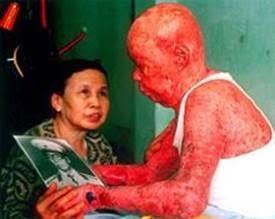Monsanto Liable for Agent Orange Damage, Vietnam Reiterates
Vietnam's Foreign Ministry has reiterated its demand that Monsanto and other U.S. firms compensate Vietnamese Agent Orange victims.

Note to readers: please click the share buttons above
The call comes after a San Francisco jury on August 10 ordered Monsanto to pay nearly $290 million in punitive and compensatory damages to Dewayne Johnson, a cancer patient whose terminal illness was allegedly caused by glyphosate in the company’s weed killer product.
“This case is a precedent that dismisses previous arguments that the herbicides supplied to the U.S. Military by Monsanto and other American chemical companies during the Vietnam War are not harmful to people’s health,” deputy Foreign Ministry spokesperson Nguyen Phuong Tra said Thursday.
“We believe Monsanto should be held responsible for compensating Vietnamese victims of Agent Orange for the damage caused by the company’s herbicides,” Tra said.
Founded in 1901 in St Louis, Missouri, Monsanto began producing agrochemicals in the 1940s. It was acquired by Bayer for more than $62 billion in June.
Monsanto was one of the producers of Agent Orange, a defoliant used by U.S. troops to strip Vietnamese forces of ground cover and food. Between 1961 and 1971 the U.S. Army sprayed some 80 million liters of Agent Orange over 30,000 square miles of southern Vietnam.
Dioxin, a highly toxic chemical in the defoliant, has been linked to many major health problems such as cancer, mental disabilities and birth defects.
Millions of Vietnamese over several generations have suffered from health problems due to exposure to Agent Orange, according to government data.
In 2004, Vietnamese victims of Agent Orange filed a class action lawsuit in a New York court against Monsanto, Dow Chemical and more than 30 manufacturers of the toxic defoliant. The case was however dismissed by the U.S. court citing lack of evidence.
On the other hand, Monsanto has multiple times been ordered by U.S. courts to pay compensation to American plaintiffs who suffered health issues from exposure to the company’s chemicals.

